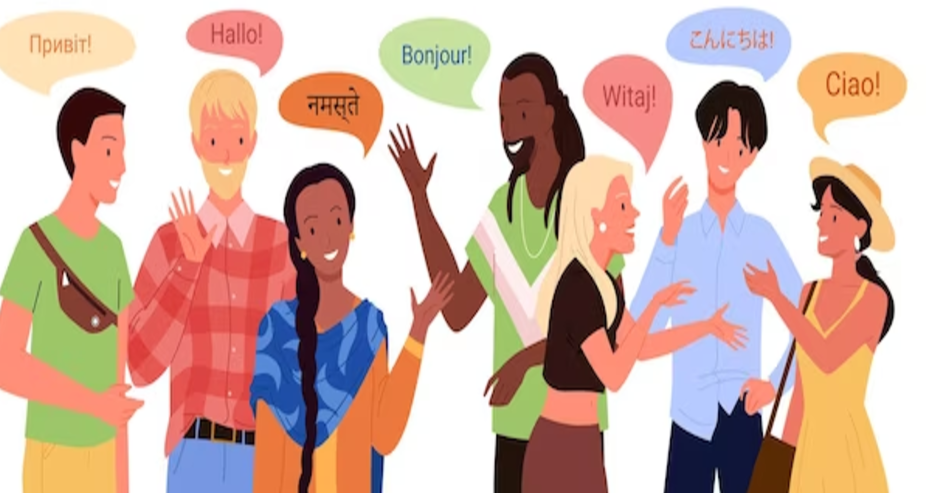By Carmen Chang,
Now, we will proceed to examine some of the disadvantages of natural languages from the viewpoint of artificial language creators. Umberto Eco (1932-2016)—a philosopher, writer, and semiotician, regarded as one of the most influential Italian intellectuals of the second half of the 20th century—offers an intriguing perspective on the flaws of natural languages from a scientific and linguistic standpoint:
Eco asserted that in the search for a perfect language, one must first acknowledge that one’s own language is imperfect (1994: 21). This statement becomes clearer when we look back to the 17th century, when the theory emerged that natural languages were practically ineffective for conveying scientific knowledge. Two main factors justify the inefficiency of natural languages: on the one hand, the inherent nature of their signs (vowels and consonants, when combined, produce varying results in each linguistic community), and on the other, the numerous anomalies and defects they exhibit (Calero, 1999: 10). Some linguistic imperfections highlighted by theorists include the plurality of meanings for the same word, irregular verb conjugations, idioms, and exceptions to grammatical rules (Leticia Gándara Fernández, 2017: 7).
These perceived flaws in natural languages motivated the creation of artificial languages. Unlike historical languages, constructed languages possess a unique feature: “a conscious design” (Okrent, 2010: 11-12, cited by Leticia Gándara Fernández, 2017: 10). As Michael Adams (2011, 2, cited by Leticia Gándara Fernández, 2017: 10) states, “inventing a language is intimidating work; no one would attempt to invent one unless driven by a serious purpose or aspiration.” The belief that natural languages were characterized by imperfections and inefficiency was shared by later language creators, who were often seen as extravagant inventors who did not adhere to the linguistic norms of historical languages.
The very act of creating new linguistic projects made these inventors defenders of this theory. For the 17th-century language creators—a group of dreamers and idealists, often characterized as “fools of language” by Yaguello (1984)—natural languages were seen as “capricious, redundant, illogical, irregular, full of ambiguities, unstable, and ever-changing instruments of communication” (Calero, 2010: 18) .

In contrast, the inventors of artificial languages aimed to design languages that avoided the inconveniences of natural languages, focusing on scientific and rational principles. Their linguistic projects were governed by principles such as rationality, logic, perfection, and clarity. Ultimately, their goal was to create rational, perfect, and regular languages, limited to use by scholars and scientists, allowing them to express reality accurately. As seen, they aspired to replicate the qualities of the primordial Adamic language, believed to be perfect as a divine gift (Galán, 2006: 59) .
Many of these linguistic inventions were created for artistic, occult, religious, or decorative purposes, but not necessarily to serve as perfect means of communication5. In this sense, Marina Yaguello (1984: 36, cited by Leticia Gándara Fernández, 2017: 8), a French linguist, in her book Le fous du langage, highlights the positive traits of artificial languages in contrast to ordinary languages:
“He was concerned with aesthetics: the desire to create a whole, a closed yet exhaustive system, endowed with perfect symmetry, where every mechanism is well-oiled, where no discord or ambiguity could arise, and where waste, equivocation, and misunderstandings are banned. A structure that is pleasing to the eye and satisfying to the mind because it lacks the regrettable exceptions, failures, and ambiguities that are the flaws of natural languages” (Yaguello, 1984: 36)
Consequently, the creators of a priori philosophical language hold a more radical view of natural languages, due mainly to the religious and scientific rigor of their linguistic inventions. They do not merely identify the shortcomings of natural languages but also propose solutions. On this subject, Calero (2010: 30-31) argues that:
“These types of languages function like mathematical codes, which (a) require a prior classification of all imaginable concepts; (b) consider the links between things, concepts, and signs as motivated, establishing an isomorphism between the three levels; and (c) eliminate the arbitrariness of natural languages by assigning meanings even to the units of the second level of articulation. These philosophical languages, which flourished in 17th-century Europe, aimed for perfection and rationalization, and they established numerous rules for every linguistic level” (2010: 30-31)

The perception that historical languages possess flaws and imprecision persisted in 19th-century European projects. The creators of artificial languages adhered to principles of practicality and realism. These systems were no longer elitist, regular, and perfect, but constructed with a posteriori method, drawing on common elements from widely spoken European languages (French, English, Spanish) or dead languages (Latin). These systems were devised with the intent of becoming international languages, hence most of their roots were drawn from Western languages. The desire to overcome language barriers between nations led these inventors to reflect on the irregularities and ambiguities present in natural languages, and to attempt once again to remedy them (Leticia Gándara Fernández, 2017: 8-9)
In summary, this debate dates to ancient times, yet it remains relevant in current linguistic research. Even today, certain criticisms of natural languages persist. As Calero (2010: 31, cited by Leticia Gándara Fernández, 2017: 8-9) notes, “ordinary language is not the imperfect machine it was once thought to be, and some of its alleged shortcomings are nothing more than subtle mechanisms that make it more flexible.” This perspective invites us to question whether these “irregularities” are indeed deficiencies of natural languages, as evidenced by studies in linguistic pragmatics:
“[The flaws of natural languages] are virtues that allow humans not only to construct true and exact statements (as logicians would have it) but also to perform acts with an unparalleled level of perfection compared to other communication systems. Yes, linguistic messages may contain ambiguity. But, far from being a defect, it is an opportunity that enables the development of humor, jokes, and witty responses. In our communications, we may find vague expressions and indeterminate messages. But it could be that this is exactly what the speaker intends. A message is appropriate if it fits the informational needs of the listener. In everyday conversation, we do not need to construct perfect messages” (Gutiérrez, 2001: 45).
Without delving further into the controversy, for some, dissatisfaction with natural languages is related to the challenge of creating a universal language. At the same time, for others, one advantage of primary languages is that they do not encourage globalization—a virtue inherent in multilingualism and the linguistic diversity of natural languages. The contribution of historical languages cannot be denied, as they serve as references for identity, social and educational integration, and as strategic elements for understanding between nations and peoples worldwide. In this regard, the article by the editorial team of Cultura titled Multilingualism in Times of Globalization, from React Spain, advocates for the defense of multilingualism and addresses the following issues:
“Rescue languages that are in danger of disappearing. Achieve true education for all. Preserve the cultural heritage of each nation. Encourage international commitment to promoting linguistic diversity and intercultural dialogue. Build increasingly inclusive knowledge societies. Strengthen cooperation between nations. Efforts have been made to consistently promote multilingualism in various nations worldwide. However, these efforts have been severely impacted by the increasing number of countries adopting English as an official language.”
References
- 7 lenguas artificiales: la imaginación tiene la palabra. Yahoo Noticias. Available here
- El Plurilingüismo en tiempos de globalización. Cultura, React Spain. Available here
- Leticia Gándara Fernández. “Origen y evolución de las lenguas artificiales”. Revista Tonos Digital. V 33, 24 de junio de 2017. Available here
- José Luis Mendívil Giró. “El cambio lingüístico, la evolución del lenguaje y la hipótesis de la uniformidad de las lenguas”. Homenaje a Ángel López García. Zaragoza: Universidad de Zaragoza, 2009.
- ¿Quién era Umberto Eco?” El Economista, Arte e ideas. Available here




